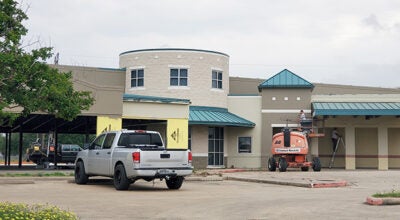At what cost? City to take a 2nd look at developing RV parks
Published 11:38 am Saturday, March 2, 2019
By Ken Stickney
The city of Port Arthur is preparing for accommodating swelling numbers of transient employees who are expected to work construction jobs at area industrial plants.
This week’s City Council agenda included proposed resolutions to locate recreational vehicle parks at three locations: one south of Highway 365, a second on Pleasure Island and a third at the intersection of Highway 73 and Port Acres Road.
Only the third proposal was approved this week; Assistant City Manager Ron Burton said Port Arthur’s planning department is reviewing city ordinances and regulations to make sure that RV parks won’t be allowed that will cost the taxpayers money.
“We have seen an increased interest in RV/mobile home parks on a weekly basis,” Burton said this week. “We get four or five inquiries a week from around Texas and the United States, asking about our requirements for establishing such parks.”
Some history
Port Arthur is well acquainted with such parks: There are 20 in the city — they accommodate at least 400 pads for RVs — and they have been around for as long as 30 years. In recent years, establishment of RV parks have been linked to large-scale construction at sites such as Motiva.
Now, though, the city must grapple with larger projects and efforts to accommodate more workers. Do they old rules still work?
Last month, Golden Pass LNG announced it was going ahead with plans to develop a site for exporting liquefied natural gas near Sabine Pass; Sempra LNG, too, has progressed toward developing a site on Highway 87 en route to Sabine Pass, past the Valero and ChevronPhillips plants.
Those projects — both are in the $10 billion neighborhood — will guarantee an influx of thousands of workers for at least several years. In the case of Golden Pass, which will begin construction this year, as many as 9,000 construction workers will be on that site over a five-year project stretch.
Burton said requests for the parks are made citing “workforce housing.” In most cases, that involves accommodating workers who will be here during the week, then return to their permanent homes on weekends.
“We have been lenient in the past,” Burton said, providing such RV parks with city services that include police, fire, water, waste water and sewer and trash pickup.
That’s because the city has seen itself as an economic partner with developing industry in the area, he said.
“We welcome it, we want to support industry, we want to be partners in development,” he said, “but not at a cost to the city. We have a responsibility to our taxpayers and to the corporate community, as well.”
Some prosper
Park developers, on the other hand, prosper.
“It’s a gold mine for them,” Burton said. He said they might charge individual RV owners as much as $500 a month per pad. The city, in turn, collects little revenue.
“The workers go to area restaurants, but there is no way to track the economic benefits to the city,” he said. Workers say it’s cheaper for them to live at RV parks, go home on weekends and, at the end of the project, disconnect the RVs and move on the next construction job — wherever that might be.
“At that time, they have paid for their RVs,” Burton said.
But Burton and other city officials say the municipality has to do a better job of monitoring the sites. City officials don’t want the parks to turn into “junkyards” with dilapidated housing units or junk cars left behind. Homeowners in nearby residential areas also worry about the effect of the parks on their home values.
RV parks in Port Arthur must be developed on at least five acres of land, Burton said. The RV park OK’d this week, at Camellia Plaza in Port Acres, is being built on 11.7 acres and will offer 136 pads.
But other requests are on hold. Burton said Chapter 58 in the ordinance, overseeing RV parks, must be reviewed. Fee structures may be changed. The city’s Planning and Zoning Commission and City Council will need more information about proper zoning.
Do all prosper?
Some city leaders fear that the RV parks may diminish the revenue the city collects from its hotel/motel tax, which boosts local tourism. Area hotels, though, continue to run full, Burton said.
“If properly structured, we’d like to make sure it may create some sort of revenue to support the infrastructure for what we are providing,” Burton said. “We want to make sure the city is not at a deficit for providing services to these parks.
Bottom line is the bottom line: Are the RV parks paying their way and not costing citizens? It’s a question that must be answered.
The next major plant construction project is not that far behind, Burton said.





